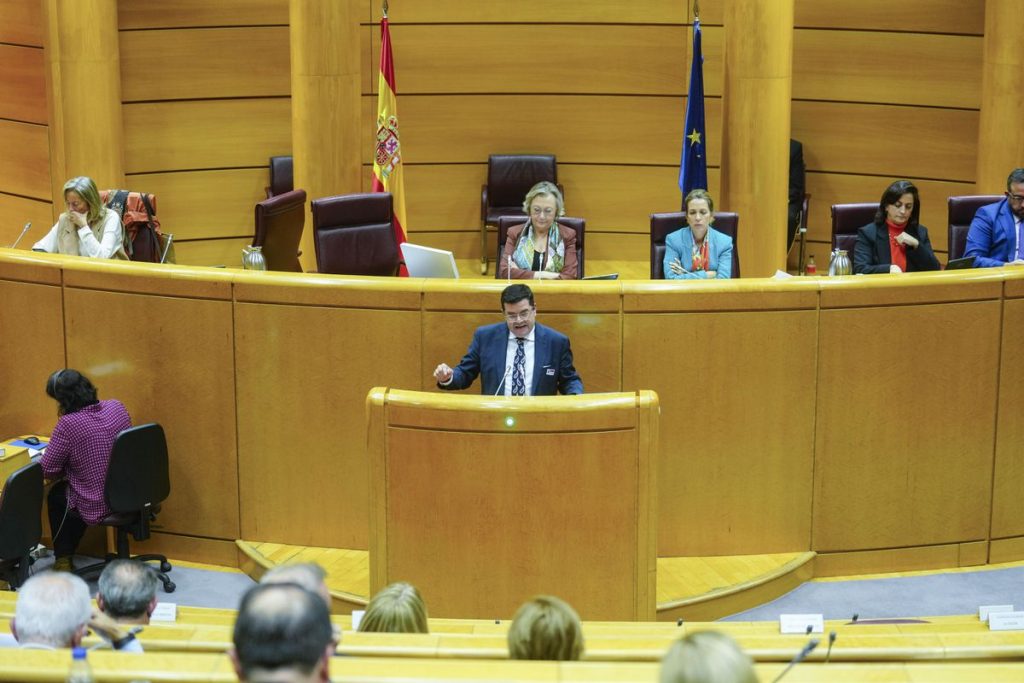The voices of the two new spokespersons in the Senate, Juan Espadas from the Socialist parliamentary group, and Alicia García from the Popular Party, will be more prominent in comparison to past legislatures. The Senate holds special relevance during this term, as the coalition government will face the absolute majority of the Popular Party in the Senate, which aims to undermine every initiative coming from the Congress. The confrontation between Espadas and García will reflect the intense battle between the two main parties, immersed in a relentless war of words over Pedro Sánchez’s investiture. One of the main tools for the Alberto Núñez Feijóo’s party will be the General Commission of the Autonomous Communities, convened twice in the last two months, the only forum where representatives of the regional governments can intervene, led by 11 Popular Party presidents in contrast to the meager socialist dominance.
During the General Commission of the Autonomous Communities held on Tuesday, several Popular Party councilors took to the platform and criticized the forgiveness of debt to Catalonia and the amnesty for those involved in the independence process. One of the main objectives of the Popular Party, which is central for the Socialist Party, will be the processing of the amnesty law proposal. Hence, the Popular Party amended the Senate’s Rules two weeks ago to slow down the parliamentary process of the law in the upper house. Last week, the Popular Party requested the opinions of the State Council and the Fiscal Council on the amnesty law proposal even before it is approved in the Congress, which was rejected by the Socialist Party and other parties in the lower house.
The Popular Party has the possibility to request another examination by its own legal expert in the Senate, but they refuse to halt its processing at the Board. This resistance has drawn harsh criticism from its main partner, Vox. Vox expects the Senate to be a bulwark against any attempt at a coup d’état,” said Javier Ortega Smith, the party’s spokesman in the Madrid City Council. Vox insists that the Popular Party must prevent the continuation of the law in the Senate by any means necessary. In the short term, another key government initiative that could be hindered is the development of the Budget, whose spending limit must first be approved in the Senate before moving forward with the General State Budget Law planned for next year.
In a bicameral system where the Senate is in a subordinate position to the Congress, and where leaders who have already held other relevant positions often step down, the PSOE has appointed Espadas as spokesperson in the upper house to “strengthen” and give it “visibility”, aware of the different circumstances of this legislature. “The goal of the appointment is to strengthen my position as general secretary and that of the PSOE in Andalusia,” said Espadas, the successor of Eva Granados in the Senate. The dynamics in the Senate will be crucial during this term, with the Popular Party intending to disrupt the government’s agenda and push back against legislative proposals from the Congress. The political confrontation and power struggle between the two main parties will play out in this venue, setting the stage for a challenging and contentious term in Spanish politics.


